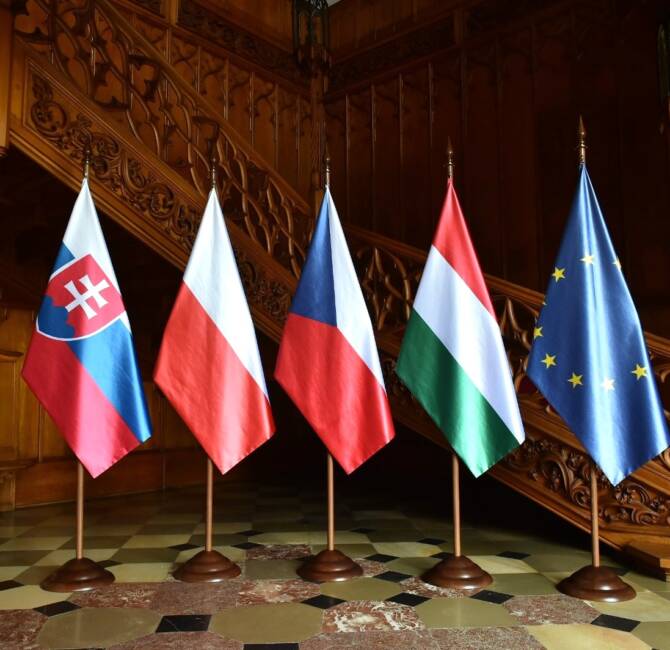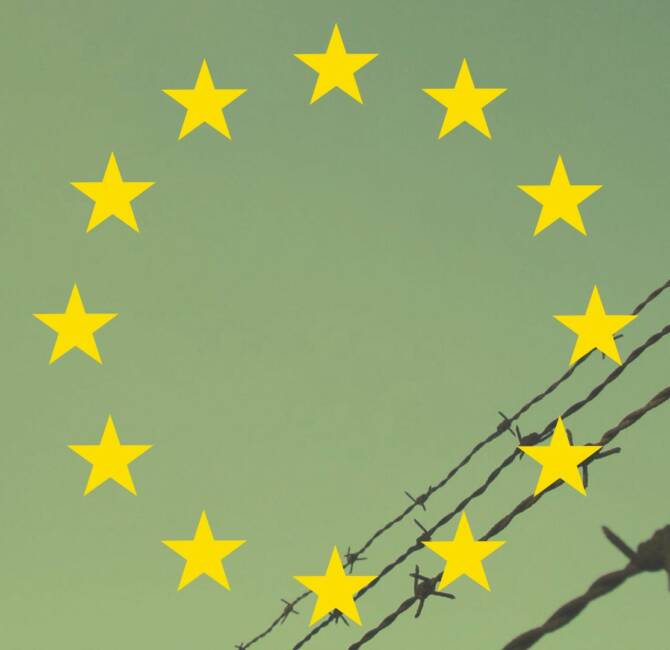The dispute over grain and related anti-Polish comments by Ukrainian politicians have brought to light how far the interests of Warsaw and Kyiv diverge. It is necessary to speak to the Ukrainians in the language they know best – the language of power. But even that might not result in very much, because Kyiv seems to be deserting Warsaw for Berlin and Brussels.
This article by Maciej Pieczyński was published originally in Polish, in August 2023, in “Do Rzeczy” weekly magazine. To read the full version in English on Sovereignty.pl, please click here.
With the approval of the European Commission, Poland, Hungary, Bulgaria, Slovakia and Romania have closed their markets to Ukrainian grain. The ban lasts until September 15, but the governments of all five countries favor extending it. Warsaw has announced that it will continue its restrictions even without the approval of Brussels. And this matter has become the most serious thorn in Polish–Ukrainian relations since February 24, 2022. In the end it was not the dispute about the Volhynia genocide that caused Kyiv to hit back against Warsaw, but the grain question.
The language of power
“Russia has disrupted the grain initiative, destroying the infrastructure of our Black Sea ports and once again provoking a global food crisis. During this critical time, Poland intends to continue blocking the export of Ukrainian grain to the EU,” complained Denys Shmyhal, effectively equating Warsaw’s actions with those of Moscow. Equating Poland, to whose assistance Ukraine owes its independence, with Russia, which is trying to take away that independence. He called the Polish government’s plans an “unfriendly and populist move” that would “severely impact global food security and Ukraine’s economy.” He called for assistance from the European Commission, asking them to end the blockade. He also appealed to Poles not to “fall for populism.” He proposed “cooperation” instead of “slogans and short-term political expediency.” When Marcin Przydacz said that Ukraine ought to show more appreciation for what Poland is doing for it (more or less the same as what British defense secretary Ben Wallace said at the NATO summit in Vilnius, but in more diplomatic terms), a sharp reaction came from Andrii Sybiha, deputy head of the Ukrainian president’s office, who wrote, among other things: “When Ukraine is at war, trying to ‘bargain’ something more from it is tantamount to treachery, which should have no place in our relations (…) There is nothing worse than having your rescuer demand a rescue fee from you even when you are bleeding.” He also noted that all in all it is Ukraine that is rescuing Poland, since it is giving lives to defend Europe against Russia. He called the Polish minister’s statements “manipulation.”
Sybiha’s comments were not the only reaction to Przydacz’s words. In response to the gentle, even timid criticism from the minister in President Andrzej Duda’s office, Polish ambassador Bartosz Cichocki was summoned to the Ukrainian foreign ministry. […]




